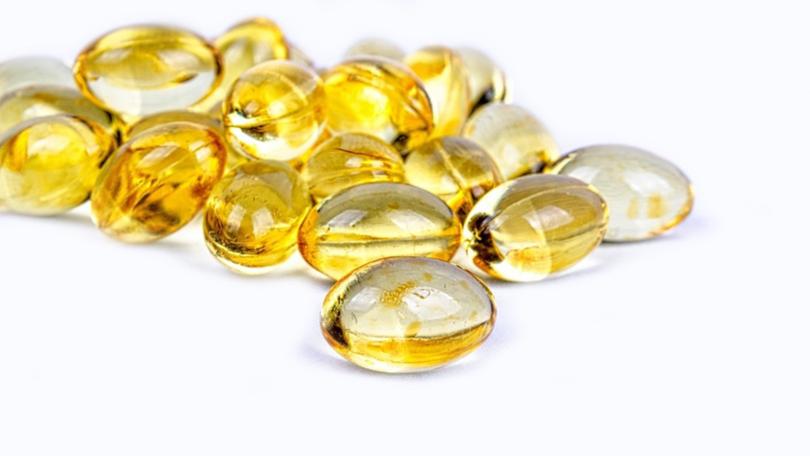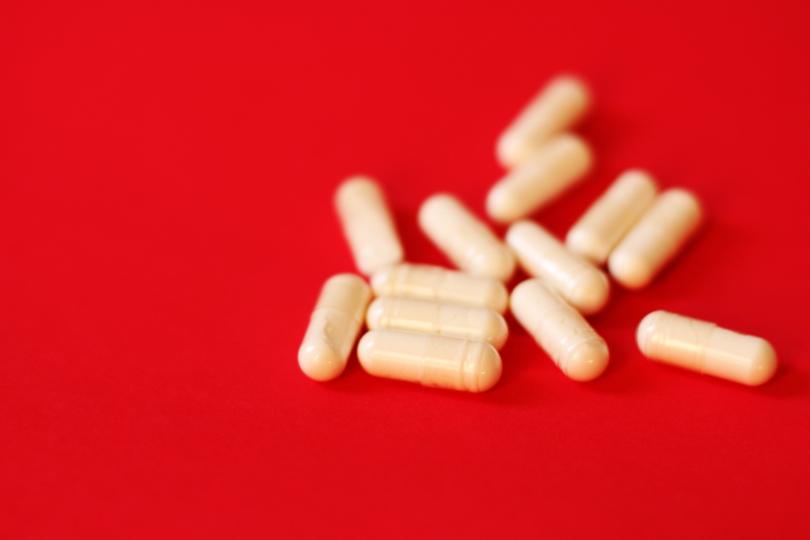Think the more vitamins and minerals you take, the better? Think again.

Think you can’t overdose on face cream? Or the more vitamins and minerals you take, the better?
Think again. As our beauty routines get more complicated, we need to be wary of inadvertently overdosing on ingredients, or mixing and matching products with potentially dangerous results.
“We’re loading ourselves up with too many topical products and insane amounts of supplements,” Woodford Medical aesthetic expert Dr Mervyn Patterson said.
Sign up to The Nightly's newsletters.
Get the first look at the digital newspaper, curated daily stories and breaking headlines delivered to your inbox.
By continuing you agree to our Terms and Privacy Policy.He warned this could cause skin damage, interfere with medical tests and possibly lead to serious health problems.
BE BIOTON BEWARE
Biotin, or B7, is a popular vitamin widely used in supplements for hair, skin and nails. It is water-soluble, which means it doesn’t build up in the body and you don’t need huge amounts.
“Biotin is only useful as a supplement if you have a deficiency,” nutritionist Emma Bardwell said, warning that excess use can come with dangers, including interference with thyroid and heart tests.
Last year, the British Generic Manufacturers Association wrote to healthcare professionals warning that biotin can affect thyroid function results and urged them to ask patients about biotin or skin, nail and hair supplement use before testing.
In 2019, the U.S. Food & Drug Administration said that high doses could interfere with tests used to measure troponin (a protein in heart muscle that’s released into the bloodstream during a heart attack), with concerns about both false high or low results depending on the test.

“If you go to hospital with chest pain, your troponin levels will be measured,” said Dr Oliver Guttmann, consultant cardiologist at The Wellington hospital.
“Biotin might be used to check these levels, so a biotin supplement can affect the measurement. The concern is falsely low/negative levels of troponin, as heart attacks can be missed.”
Similarly, biotin is used to check the thyroid, so wrong measurements can occur.
Less than 0.9 mg of biotin daily is unlikely to cause harm. But in the wild west of the supplement world, you can buy tablets containing up to 12 mg.
While packaging on such products recommends consulting a doctor or pharmacist if you are on medication or have medical conditions, we’re so conditioned to view supplements as safe, how many of us actually do so?
KEEP AN EYE ON VIT A
Hailed as a skincare wonder ingredient, retinol (vitamin A) increases collagen production.
But in April the EU warned of overexposure, and is implementing new legislation to limit retinol levels in products.
“The contribution of vitamin A from cosmetic products to the overall consumer exposure, although low, may be of concern for consumers with the highest exposure to vitamin A (5 per cent of the total population) from food and food supplements,” the Scientific Committee on Consumer Safety said.
“If you have too high a concentration in your system it can damage the liver and cause bone-thinning. I wouldn’t be worried about skin irritation so much as the systemic effect,” said Dr Patterson, although he warns overuse of retinol can irritate and thin skin.
The Mayo Clinic warns more than 3000 mcg daily on a long-term basis can cause the problems mentioned, as well as joint and bone pain, headaches, nausea and diarrhoea.
Vitamin A is often marketed as a beauty supplement which can be bought cheaply and in very high doses.
Taking one along with a multivitamin (providing more than 100 per cent of your daily needs), eating a portion of spinach and carrots and using a topical retinol cream could add up to almost 10,000 mcg.

DON’T OVERDO VIT C
“The RDA for adults is 40 mg daily, but this is the lowest level, to prevent things like scurvy,” Ms BArdwell said.
There’s a trend for taking a very high dose of vitamin C for skin health and immunity.
The upper limit is 2000 mg a day but even 1000 mg can cause stomach problems.
“It’s easy to consume these levels, especially in powder form,” she said.
DON’T MIX AND MATCH
If you’re a fan of the TikTok trend for layering on skincare products, beware, as mixing ingredients can be harmful.
“The skin can only absorb so much,’ says Dr Patterson.
Retinol (or other forms of vitamin A) and vitamin C cream applied at the same time might cause irritation, as might vitamin C and AHAs [alpha hydroxy acids], or retinol and salicylic acid, which can dry out the skin.
Dr Patterson recommends using “five basics from the same range”.
FISHY BEHAVIOUR
Ideally, we ought to be eating our omega-3s. Supplements — said to help combat dry skin and boost hair and nail health — should be taken with caution by those using blood thinners due to fears of an increased risk of bleeding.
“Too high a dose can change the way in which it’s used by the body, potentially making warfarin more potent,” Dr Guttman said.
Fish oil can thin blood: a study of 56 healthy adults taking 640mg a day for a month found clotting decreased overall.
